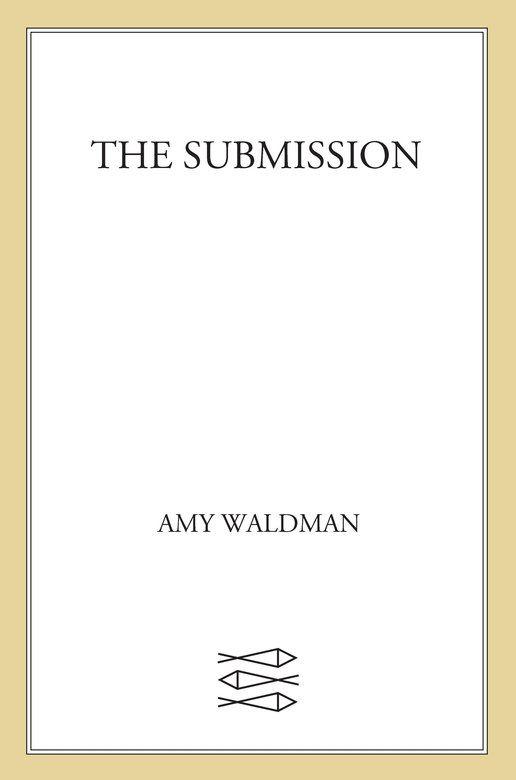
The Submission
A Novel
- اطلاعات
- نقد و بررسی
- دیدگاه کاربران
نقد و بررسی

Starred review from May 23, 2011
Waldman imagines a toxic brew of bigotry in conflict with idealism in this frighteningly plausible and tightly wound account of what might happen if a Muslim architect had won a contest to design a memorial at the World Trade Center site. Jury member and 9/11 widow Claire Burwell presses for the winning garden design both before and after its creator is revealed as Mohammed "Mo" Khan, an American-born and raised architect who becomes embroiled in the growing furor between those who see the garden as a symbol of tolerance and peace, and various activists who claim patriotism as they spew anti-Islamic diatribes. Waldman keenly focuses on political and social variables, including an opportunistic governor who abets the outbreak of xenophobia; the wealthy chairman of the contest, maneuvering for social cachet; a group of zealots whose obsession with radical Islam foments violence; a beautiful Iranian-American lawyer who becomes Mo's lover until he refuses to become a mouthpiece; and a trouble-sowing tabloid reporter. Meanwhile, Mo refuses to demean himself by explaining the source of his design, seen by some as an Islamic martyr's paradise. As misguided outrage flows from all corners, Waldman addresses with a refreshing frankness thorny moral questions and ethical ironies without resorting to breathless hyperbole. True, there are more blowhards than heroes, but that just makes it all the more real.

July 1, 2011
The selection of a Muslim architect for a 9/11 memorial stirs a media circus in Waldman's poised and commanding debut novel.
The jury assembled to select a design for a memorial in Manhattan represented every important interest group: a 9/11 widow, an art critic, a governor's representative and other major stakeholders. They considered blind submissions before arriving at a garden-themed design. The one contingency they didn't plan for was that the winner would be a Muslim, Mohammad Khan. Though he's not especially religious and his bona fides as an architect are impeccable, Khan still becomes a target for anti-Islam firebrands, and even his defenders are left wringing their hands. Waldman skillfully presents the perspectives of a handful of major characters, including Claire, a 9/11 widow; Sean, a pugnacious victims' activist who lost his brother in the attacks; and Mohammad, who vacillates between gloomy isolation and outspoken defiance at attempts to reject or tweak his design. Waldman shrewdly, subtly reveals the class and race divisions that spark arguments about who "owns" the design; it's no accident that wealthy Claire played a leading role on the jury while Asma, a working-class Bangladeshi woman who lost her husband in the attacks as well, is all but unheard. Waldman, a former New York Times reporter, discusses 9/11 victims, memorial gardens and Muslim-American life, but her keenest observations are of the media. She has a canny understanding of how a New York Post front page can stoke right-wing rage, or how a New York Times article can muddy the waters. There's a slight cartoonishness to her characterizations of cub reporters and radio hosts, but overall this is a remarkably assured portrait of how a populace grows maddened and confused when ideology trumps empathy.
A stellar debut. Waldman's book reflects a much-needed understanding of American paranoia in the post-9/11 world.
(COPYRIGHT (2011) KIRKUS REVIEWS/NIELSEN BUSINESS MEDIA, INC. ALL RIGHTS RESERVED.)

March 1, 2011
Ten years after 9/11, writing about the attacks without seeming to exploit them can still be a challenge. Debut novelist Waldman takes an effective approach by imagining a search for a fitting memorial that ends up revealing the divisions underlying American society. A member of the jury choosing the memorial, Claire--who lost her husband on 9/11 and now finds herself cast as a "star widow"--champions a garden whose walls contain the names of the dead. The design wins, the anonymous submission is opened, and the architect is revealed to be Muslim American--born here, hardly a practitioner of his faith, and not ready to fall into the role of the enemy. At first glance, Waldman's tale unfolds in fluid, accessible language, and the issues raised here will deeply engage readers.
Copyright 2011 Library Journal, LLC Used with permission.

Starred review from July 1, 2011
After venomous deliberations over anonymous design submissions for a 9/11 memorial at ground zero, the jury selects an elegant garden as the ideal embodiment of remembrance and rebirth. But when the identity of the architect is revealedMohammad Khan, the American son of Muslim immigrants from Indiathe dream of national healing warps into a hysterical nightmare. As public outrage ignites, entangled characters struggle with anger, fear, conscience, and ambition. Mohammad, called Mo, is stubborn and aloof. Journalist Alyssa is desperate to capitalize on the excoriating scandal. Down-and-out Sean, who lost his firefighter brother, flounders as spokesperson for the victims' families, while two young 9/11 widowsClaire, wealthy and glamorous, and Asma, an illegal immigrant from Bangladeshpush through grief to try to do the right thing. In her magnetizing first novel, replete with searing insights and exquisite metaphors, Waldman, formerly a New York Times reporter and co-chief of the South Asia bureau, maps shadowy psychological terrain and a vast social minefield as conflicted men and women confront life-and-death moral quandaries within the glare and din of a media carnival. Waldman brilliantly delineates the legacy of 9/11; the confluence of art, religion, and politics; the plexus between the individual and the group; and the glory of transcendent empathy in The Bonfire of the Vanities for our time.(Reprinted with permission of Booklist, copyright 2011, American Library Association.)




دیدگاه کاربران